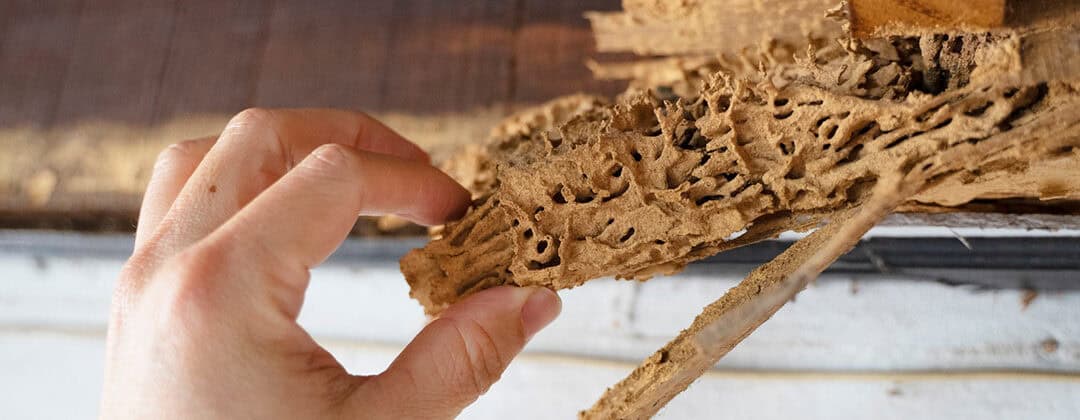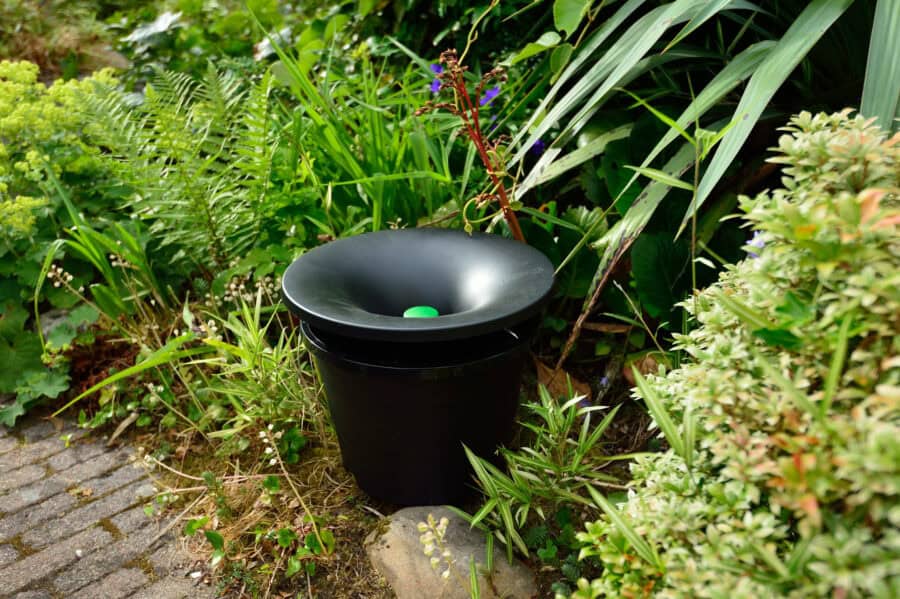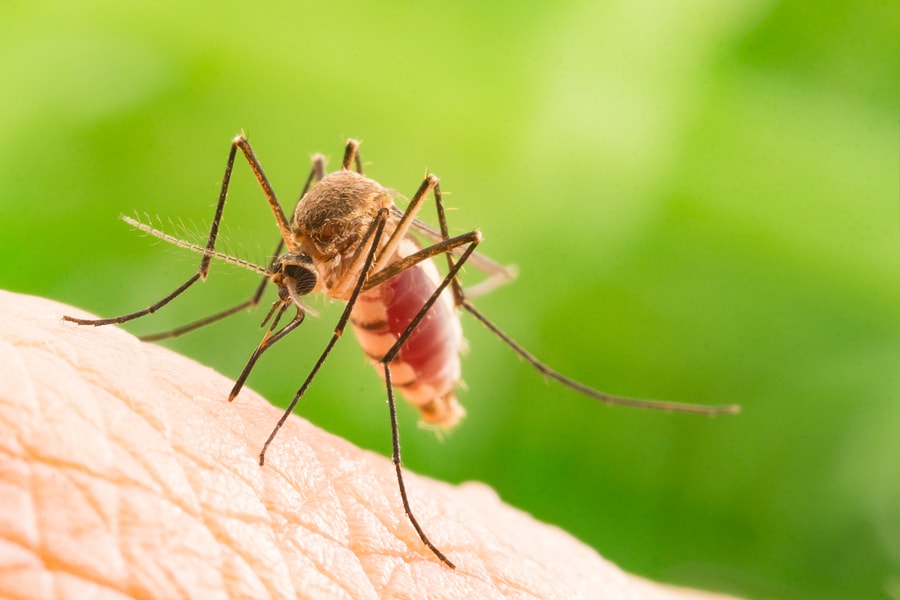READY TO GET STARTED?
REQUEST A FREE ESTIMATE
Fill out the form below or call (336) 226-1448 for a free, no-obligation estimate.

Green pest control is an environmentally conscious approach to managing pests that goes beyond simply choosing “natural” products. Often referred to as Integrated Pest Management (IPM), it focuses on understanding pest biology and behavior to design precise solutions. Instead of broad applications, this method relies on targeted actions and prevention to provide long-term results.
The IPM process generally includes:
This strategy emphasizes non-chemical options first, reducing exposure for your family, pets, and beneficial wildlife.
Green pest control prioritizes precision. Instead of a one-size-fits-all spray, professionals use treatments that directly address the problem. For example, an ant infestation may be handled by targeting the nest with baits instead of treating the entire yard. This focused approach often delivers stronger, longer-lasting results.
Rather than reacting to infestations, green pest control is proactive. By sealing entry points, reducing excess moisture, and eliminating food sources, your home becomes less appealing to pests in the first place. Addressing the root causes leads to fewer long-term issues compared to repeated treatments.
This method minimizes harm to the surrounding environment. Non-chemical solutions are the first line of defense, and targeted treatments are only used when necessary. This protects pollinators, pets, and beneficial insects while still managing pests effectively.
This approach is well-suited for nearly any household and can be customized to address common North Carolina pests such as ants, cockroaches, spiders, and rodents. It’s especially beneficial for families with children, pets, or individuals with sensitivities.
Working alongside your provider helps maximize results. Homeowners can:
Some preventative measures can be done on your own, but a comprehensive IPM program is best designed by professionals. A trained pest control technician can correctly identify pests, uncover hidden vulnerabilities, and create a plan tailored to your home.

Dealing with pests is an inevitable part of homeownership, especially in the vibrant and diverse climate of North Carolina. While traditional pest control often relies on harsh chemicals, more homeowners are turning to eco-friendly methods as a healthier, smarter way to protect their homes. Green pest control not only protects your family and pets from harmful substances but also minimizes your impact on the environment, making it a win-win solution. Here’s how NC homeowners can take a greener approach to pest control by focusing on prevention, natural remedies, and sustainable habits.
The first line of defense in green pest control is prevention. By making your home less appealing to pests, you can stop infestations before they start.
Most pests enter your home through small cracks and gaps in walls, doors, and windows.
Pests are drawn to food, water, and shelter. Removing these attractants can deter them from settling in.
Your outdoor environment plays a big role in pest prevention.
Once you’ve taken preventive steps, you can add an extra layer of protection with natural repellents. These eco-friendly solutions are effective and healthy for indoor and outdoor use.
Many essential oils are natural deterrents for pests.
Planting certain plants in your yard or garden can naturally ward off pests.
Pests don’t have to wreak havoc on your North Carolina home, and you don’t need to rely on toxic chemicals to keep them at bay. By sealing entry points, maintaining a clean home and yard, and using natural repellents, you can take control of pest problems in an environmentally friendly way.
For larger infestations, partnering with green pest control company near you ensures that your home stays pest-free without sacrificing your well-being. With a greener approach, you can create a healthier space for your family while doing your part for the planet.

Termites cause billions of dollars in property damage across the United States annually, making them one of the most persistent challenges for homeowners. But in North Carolina, there’s a growing shift toward green pest control that emphasizes sustainable, effective methods for managing termites without compromising the environment.
Whether you’re a homeowner concerned about protecting your investment or an eco-conscious individual looking for termite solutions that align with your values, this guide offers valuable insights into North Carolina’s approach to addressing termite infestations.
Homeowners in North Carolina are becoming increasingly vigilant, recognizing the importance of early detection. Waiting to act typically allows termite colonies to grow, leading to extensive damage to your home’s structure. These insects are often discreet, operating out of sight and under the radar, which means catching them early can save you stress and costly repairs.
Wondering what signs to look for? Here are some of the key indicators of termite presence in your home or on your property:
Regular inspections by pest control professionals can be invaluable in catching these signs before significant issues arise.
There’s a saying in the pest control industry that prevention is better than intervention. While dealing with an infestation can be challenging, North Carolina’s homeowners are increasingly opting for proactive measures that reduce the likelihood of termites becoming a problem in the first place.
Property owners are turning to soil barrier treatments as a way to discourage termites from entering homes. These treatments involve establishing a physical or chemical layer in the soil surrounding your property, making it challenging for termites to gain access to wooden structures.
One eco-conscious solution homeowners can rely on is Sentricon. This innovative termite baiting system is attractive to termites leading to an easy position of eliminating the colony without harmful chemicals, making it a less-toxic and effective option for those looking to protect their homes sustainably.
Another trend sweeping North Carolina is investing in regular termite inspections. Scheduling an annual or semi-annual inspection can help homeowners catch signs of termite activity early. Professionals specializing in green pest control use techniques that allow them to thoroughly assess your property without resorting to invasive or environmentally harmful measures.
Some companies in the area even offer integrated pest management (IPM) services, a forward-thinking strategy that evaluates your home’s unique environment to develop targeted, sustainable approaches to termite prevention or control.
Moisture and termites go hand in hand, as damp conditions create the perfect environment for colonies to thrive. North Carolina’s humid climate can exacerbate this problem, so sustainable pest control strategies often focus on moisture management. Addressing leaky pipes, clogged gutters, or poor drainage can act as a natural deterrent to termites, minimizing the conditions they rely on to survive.
Choosing green pest control solutions offers dual benefits for homeowners in North Carolina. Beyond protecting your property, these methods prioritize environmental health and sustainability. Here’s how they work:
By making eco-friendly decisions, you contribute to healthier ecosystems across North Carolina while protecting your home from potential structural damage.
North Carolina homeowners are leading the way in adopting green pest control practices that prioritize their homes, health, and the environment. Through early detection and preventive measures like soil barriers, inspections, and moisture management, it’s possible to stay ahead of potential termite issues while staying true to eco-conscious values.
If you’ve noticed signs of termites or want to discuss sustainable preventive measures for your home, now is the time to act. Reach out to trusted pest control professionals in your area to keep your property protected.

Spring in North Carolina brings vibrant flowers and pleasant warmth, but it also invites one unwelcome guest—mosquitoes. These pesky insects not only disrupt outdoor activities but can also carry dangerous diseases like West Nile Virus and Zika Virus. Fortunately, there are effective, eco-conscious ways to protect your home from mosquitoes without compromising your family’s well-being or the environment.
In this guide, we’ll explore sustainable solutions for keeping mosquitoes away, from natural repellents to yard care tips and pest-repelling plants. Read on to learn how to enjoy a mosquito-free spring while being kind to the planet.
Traditional mosquito control methods often rely on harsh chemicals that can harm your health, disrupt ecosystems, and contaminate soil and water. By adopting eco-friendly alternatives, you’re not only protecting your family’s well-being but also protecting local wildlife and the environment. And, the best part? These methods can be just as effective as chemical treatments!
Here are three eco-friendly strategies to keep mosquitoes at bay naturally.
Chemical sprays may temporarily rid your home of mosquitoes, but they often leave harmful residues that can affect humans, pets, and wildlife. Thankfully, nature provides plenty of natural repellents that are just as effective and healthy for the environment.
Essential oils like citronella, eucalyptus, lavender, and peppermint are excellent mosquito deterrents. These oils not only repel mosquitoes but also provide a pleasant, non-toxic fragrance.
How to use them: Mix 10–20 drops of your favorite essential oil with water and a small amount of witch hazel in a spray bottle. Apply this DIY spray to your skin, clothing, and outdoor furniture. Reapply every few hours for optimal protection.
Pro Tip: Add a few drops of citronella or lemongrass oil to candles or tiki torches around your outdoor seating area to enhance protection.
Coffee grounds are an unexpected yet effective mosquito repellent. Sprinkle used coffee grounds over standing water in your yard. Mosquitoes dislike the smell, and this simple solution can prevent them from laying eggs in stagnant water.
These eco-friendly methods let you stay mosquito-free without harming the environment.
Mosquitoes thrive in standing water. Even a small amount of water, like the size of a bottle cap, can create an ideal breeding ground for larvae. Regular yard maintenance is essential to disrupt their life cycle.
Make sure to regularly check areas where water can accumulate, including:
Mosquitoes love hiding in tall grass and dense shrubs. Keeping your lawn well-maintained by mowing and trimming reduces mosquito habitats.
Poor soil drainage can lead to puddles, creating ideal breeding spots for mosquitoes. Aerating your soil helps improve drainage and eliminates potential breeding grounds after rain.
By maintaining your yard, you reduce mosquito populations and create a healthier environment for both your plants and family.
Transform your yard into a mosquito-free sanctuary with the addition of plants that naturally repel these pests. Many plants produce oils or fragrances that mosquitoes find offensive, offering a green way to protect your outdoor spaces.
Here are some excellent options for North Carolina climates:
Plant these mosquito-repellent plants around outdoor seating areas or near doorways to form natural barriers. You can also use potted versions to create mobile mosquito-repelling zones throughout your yard.
With the right combination of plants, your yard can look beautiful while staying pest-free.
If you’re looking for additional support in keeping your home mosquito-free, In2Care® offers an eco-friendly mosquito control system that targets mosquitoes at every stage of their life cycle. This innovative system uses green mosquito control to reduce mosquito populations without harmful chemicals, offering an environmentally healthy solution that’s ideal for residential areas.
In2Care® provides an alternative to traditional chemical mosquito control, helping to protect your family and local ecosystems while effectively managing mosquito populations. Learn more about how this green solution can help keep your yard mosquito-free!
Every action you take to make your home less appealing to mosquitoes contributes to a healthier, more enjoyable spring season. By using natural repellents, maintaining your yard, and incorporating mosquito-repellent plants, you can drastically reduce mosquito presence without relying on harsh chemicals.
Ready to protect your home the green way? Start today with these simple, effective methods. For more eco-friendly mosquito control tips and solutions tailored to North Carolina homeowners, stay connected with our blog.
If you’re looking for expert advice from pest control professionals on creating a mosquito-free yard, we’re here to help! Contact us to learn more about our sustainable mosquito control services and how we can assist you in making your home healthier and greener.

Mosquito season is here! Summer rain brings humidity which allows mosquitoes to thrive during these months. Although mosquito season starts in spring, peak season is during the summer when temperatures are the hottest. Mosquito bites leave behind itchy, red welts and can also transmit dangerous diseases to humans and pets. Fortunately, there are a handful of green pest control options that you can use to control mosquitoes. Below are three steps you can take for green mosquito control.
Identify Nesting and Resting Sites
The first step to mosquito prevention is identifying and eliminating what attracts them in the first place. Mosquitoes tend to come around in search of nesting sites and resting sites. All species of mosquitoes lay their eggs in water. While the type of water source may vary between species, it only takes a tiny amount of water for mosquitoes to hatch and develop. You can get rid of any potential breeding sites by:
Protect Yourself from Bites
You should protect yourself from mosquito bites whenever you can. You can do so by:
Applying Green Mosquito Treatments
Mosquito treatments vary in both effectiveness and longevity depending on where you live and what kind of climate you have. Regardless of your location, a green mosquito control program can be effective at helping control mosquitoes. Green mosquito control utilizes eco-friendly products that are just as effective as traditional products.
Our green mosquito reduction program includes an inspection to identify resting and nesting sites, larvicide and adulticides to target all aspects of the population, source reduction and elimination by removing any areas of standing water, plus a service guarantee where they can come back between treatments if needed, usually at no cost.
If you have a problem with mosquitoes or any other pests, contact your local professional pest control company. They should be able to provide you with a thorough inspection and the most up-to-date traditional and green treatment options available for you.